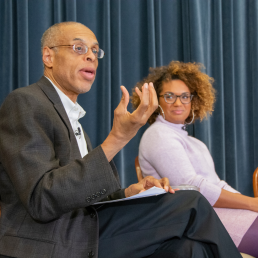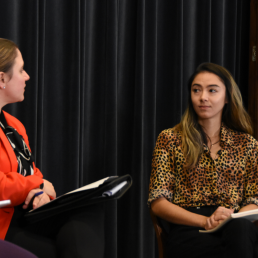Blog Post On IIPSJ Participates in Event at Copyright Office
IIPSJ Joins Copyright Office to Discuss Social Justice and Empowering Creators of Color to Protect Their Creative Works
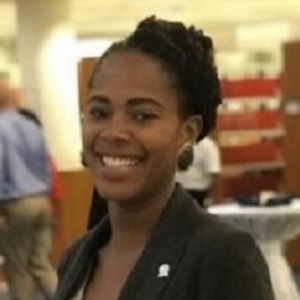
by Morgan Sills, Howard University School of Law ’21
On January 15 th the U.S. Copyright Office hosted a panel entitled “Copyright and Social Justice,” as part of its Copyright Matters series. The event explored the intersection of social justice and copyright protection, with a special focus on historically disadvantaged communities that are often unable to access protection for their work.
Opening remarks were given by Hakeem Jeffries, who is a U.S. Representative from New York and a member of the House Subcommittee on Courts, Intellectual Property, and the Internet. Representative Jeffries began the event by stressing the Constitution as the foundation of power for copyright protection and recognizing the emphasis placed on intellectual property rights by the Founding Fathers.
As the first panelist to speak, IIPSJ Founder, Professor Lateef Mtima, set the framework of the discussion by highlighting the social injustice surrounding communities that are unable to use the copyright system to protect their creations. As a result, the copyright system and structure of intellectual property rights as a whole both suffer from the exclusion of their talents and cultural contributions. IIPSJ’s Executive Director, Kim Tignor, reflected on the experiences of hip-hop groups like De La Soul and their noticeable absence from digital streaming services to illustrate the barriers faced by many artists today. She explained that there is a need to “decode” the copyright law so that artists can fairly profit from their efforts; and pointed out how the legal community often fails to educate creators on their ability to use digital space for the fair distribution of their work.
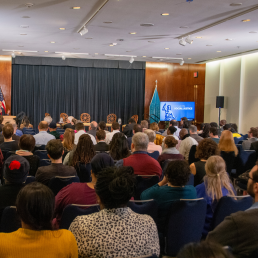
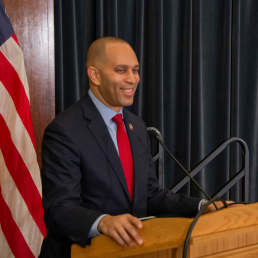
Hollis Wong Wear, a Grammy-nominated singer, songwriter, and producer, presented her perspective as an artist and advocate for other creatives. She voiced the idea that copyright lawyers can learn a great deal from artists and how legal regulations shape their reality, especially with expanded access through social media. She also used the example of Prince and his highly publicized fight against Warner Bros. to gain ownership of his master sound recordings, noting the social and economic impacts of such victories.
Law Professor and Co-Director of the IP Program at George Washington Law, Professor Robert Brauneis reported his findings after conducting research on thirty-five years of registration history. Consistent with the
reports of the previous panelists, Professor Brauneis reported that certain minority groups owned a significantly low number of actual copyright registrations compared to the amount of copyright eligible work they produced. He pointed to the CASE Act as a remedy for this situation, in
addition to the power of copyright attorneys and policy makers to serve creators and educate them on the best tools to benefit from their labor.
